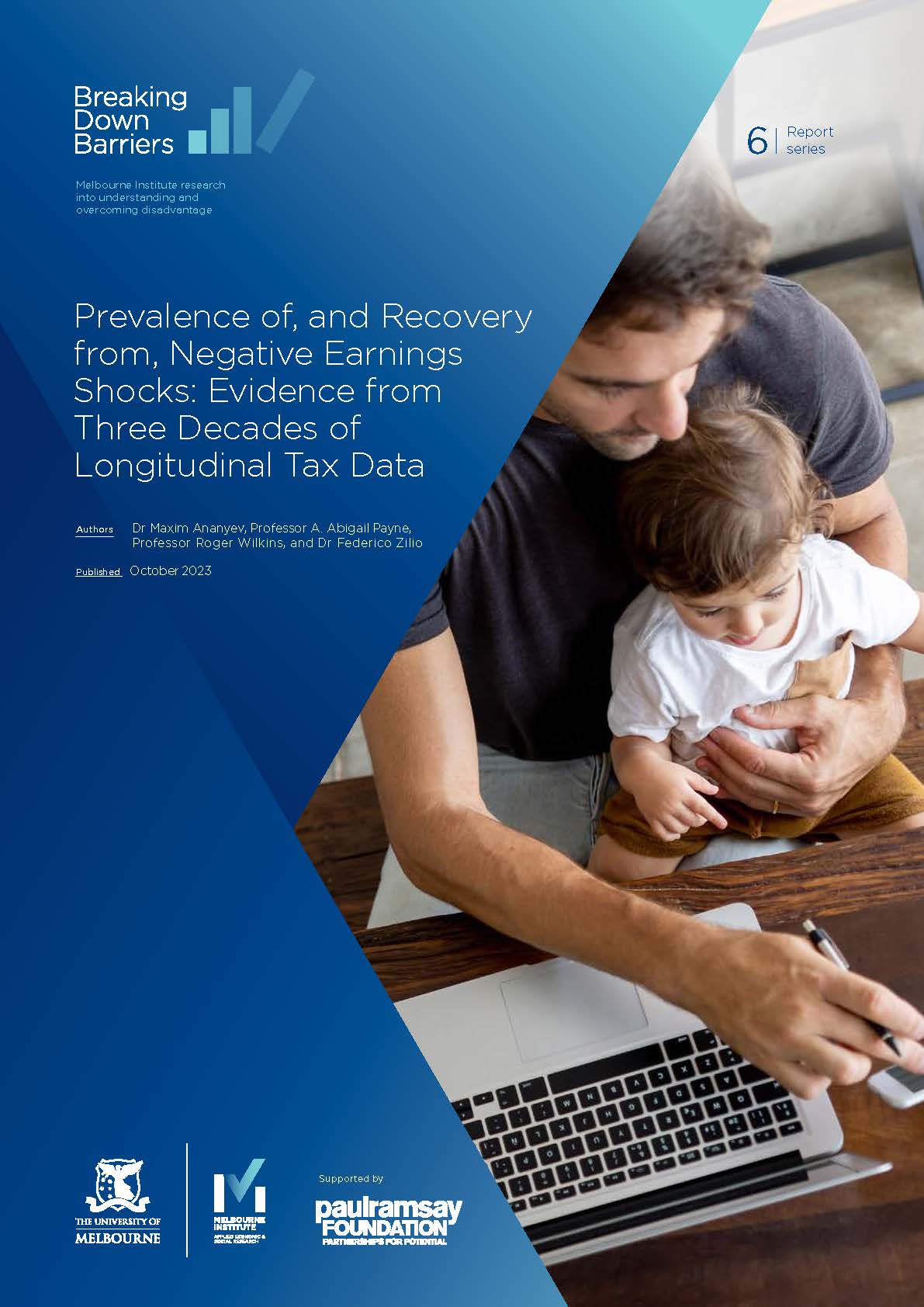Prevalence of, and Recovery from, Negative Earnings Shocks
This report explores year-to-year variations in earnings for Australian tax filers and the factors and timeframe that influence their financial recovery.

There are many reasons why a person may suddenly find themselves facing poverty or disadvantage and facing challenges when trying to escape that situation. One such reason is financial and, for most people, having enough resources to meet basic needs is tied to labour earnings.
This report uses information included on tax returns to assess the proportion of Australians who experience a significant decrease or shock in their earnings — voluntarily or involuntarily. It also explores the time it takes for a person’s earnings to return to the level they were before they experienced an earnings shock.
Age, gender, how much a person earns and whether they have children can all play a role in how quickly someone can recover from this type of shock.
The report covers a 26-year period, from 1991 to 2017, and includes more than 1.4 million Australians. It finds that, for many, the likelihood of rapidly recovering from an earnings shock is very low, with most individuals taking more than three years to return to their pre-shock earnings.
The insights from this report highlight the importance of focusing on a wider range of issues than simply unemployment rates. The research also illustrates that a voluntary or involuntary sharp decrease in earnings increases the risk of people being unable to pay bills and expenses, which can lead to a decline in a person’s economic and social wellbeing.
Individual chapters:
- Introduction
- Data and definitions
- Economic fluctuations
- Earnings shocks and recoveries, males
- Earnings shocks and recoveries, females
- Earnings shocks across income groups
- Earnings shocks across age groups
- The role of place
- The role of family composition, education, and disability
- Conclusion
Read the full report Request a briefing
AUTHORS
Dr Maxim Ananyev
Professor A. Abigail Payne
Professor Roger Wilkins
Dr Federico Zilio